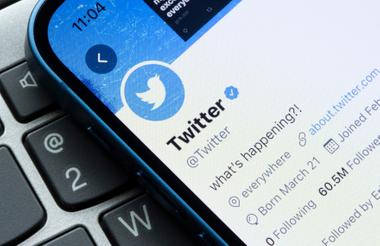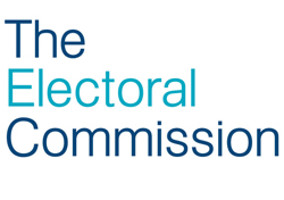There is still so much uncertainty over the future of Twitter since Elon Musk’s takeover, and charities are faced with the challenge of what to do next.
At both CharityComms and Charities Against Hate, it’s a situation we are monitoring closely and which we are trying to offer as much support on as we can.
There are lots of things that we all need to consider as we continue to use a platform still rife with uncertainty.
Build social media presence elsewhere
Like many others, we have downloaded all our Twitter data, made copies of our follower and following lists, stopped our Twitter ads, and made sure to signal other places where our audiences can reach us.
But we have not abandoned the platform itself yet, and nor do we intend to while the people we support and engage with are still on there.
Charities should look at where their audiences are and consider starting to build a presence on new or alternative networks if they're finding that their audiences have moved there.
It might be worth charities securing their name on other platforms in case it’s needed in future. But it is important not to abandon any communities that might remain on Twitter, as well as considering the realities of your own resources and capacity to sustain any new social channels.
At CharityComms, we are continuing to use our Twitter account to share useful resources and engage with our audience, but we are also dedicating more time and space to continuing to build our communities on our other platforms. We are creating space for our members to talk to each other through Mighty Networks, for example, and we are thinking about new ways to share support for the amazing work of the sector through our LinkedIn.
Our team member leading on social is investigating Mastodon and Post but we have not shifted to new platforms yet as we are focusing on engaging with our network on the others we already have: LinkedIn, Mighty Networks and Facebook.
We have kept a tweet showing the alternative ways to keep up to date with us pinned to the top of our Twitter account. If Twitter were to go down, we would immediately notify our engaged audiences that we are still available on the other platforms where we have a presence.
Should charities stay on Twitter?
This is a time when lots of charities will be weighing up the pros and cons of staying on Twitter, not least because of the ethics involved. As with any new initiative or policy change, it’s important to think about where your audiences are and what they are looking for. Consider what they need most from you and whether you need to be on Twitter in order to provide that for them.
Morally, charities need to look at their own mission and what their audiences need from them and make decisions accordingly.
Charities Against Hate’s guide to best practice in ethical digital marketing and comms practices recommends that online engagement should be respectful, authentic, unapologetic and in line with your brand values and tone of voice guidelines.
Keeping an audience focus at times like this is clearly the priority for us all.
Supporting social media teams through uncertain times
It is important to remember that dealing with uncertainty over a social platform many charities have come to rely upon for engagement is not just one person’s responsibility. We run regular all-staff check-ins and during these we talk about the Twitter situation. This is so that everyone is kept updated on our approach and is able to offer help, support and ideas. Understanding and engaging audiences takes teamwork in the charity sector and dealing with big issues like this is no different.
Staff working in social media at charities need to feel supported, not only to protect their own wellbeing, but so that they have the resources and skills to effectively combat online hate they may experience as part of their job and ultimately better support the communities they work with.
Our social channels should be a space to connect with people, champion the people we support, promote our work, share resources and inspire support for our causes. If we are not actively participating where the conversations are taking place, we cannot counter misinformation, provide support and be there when our communities most need us.
Sarah Clarke is head of membership and Christine Fleming is head of digital content at CharityComms
Related articles











